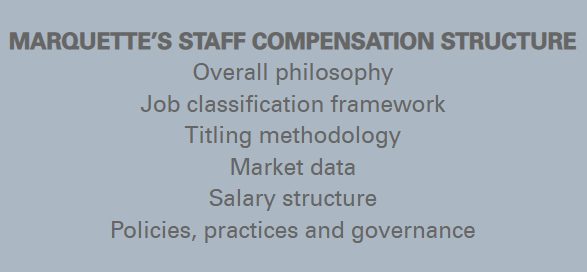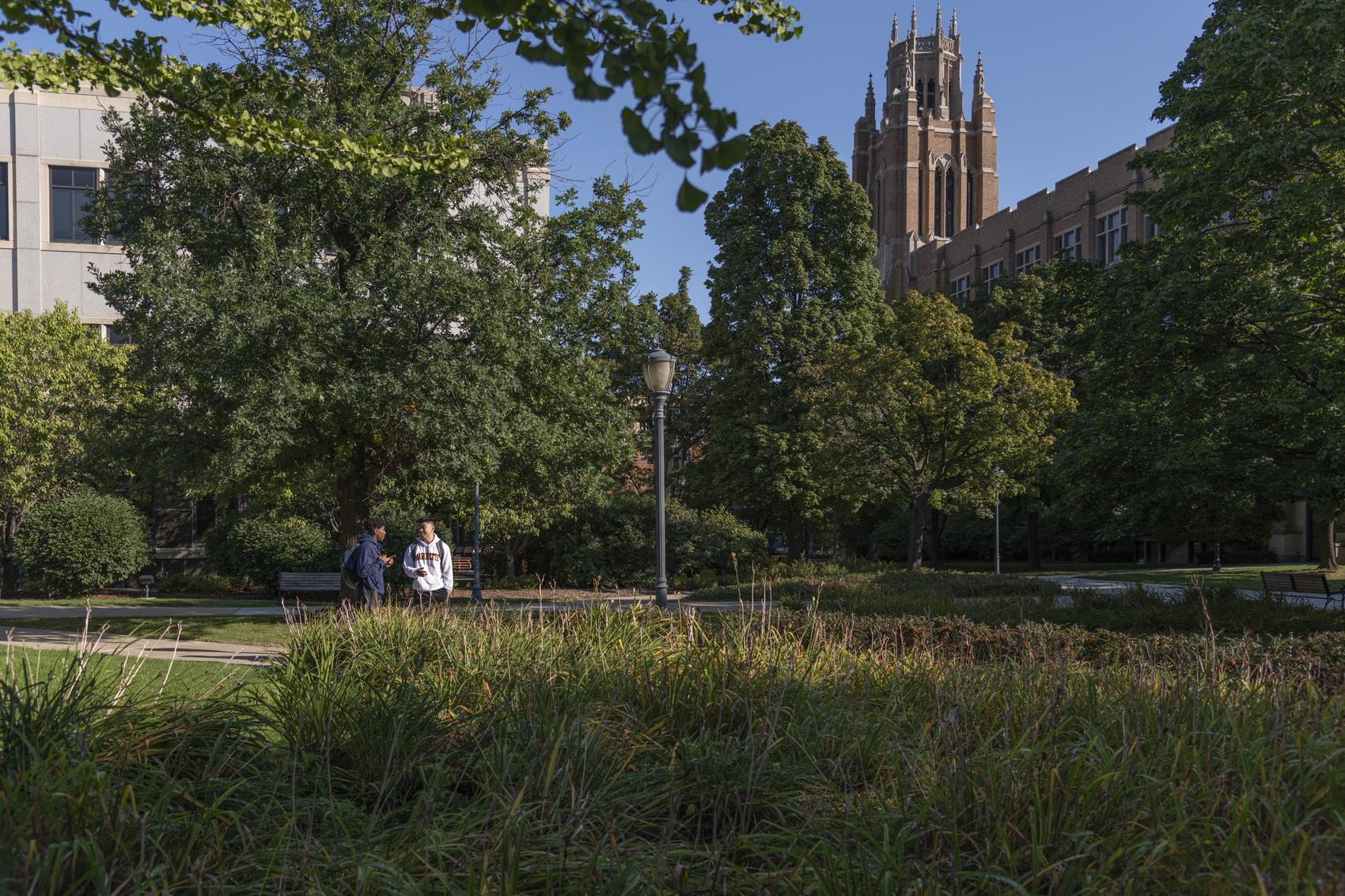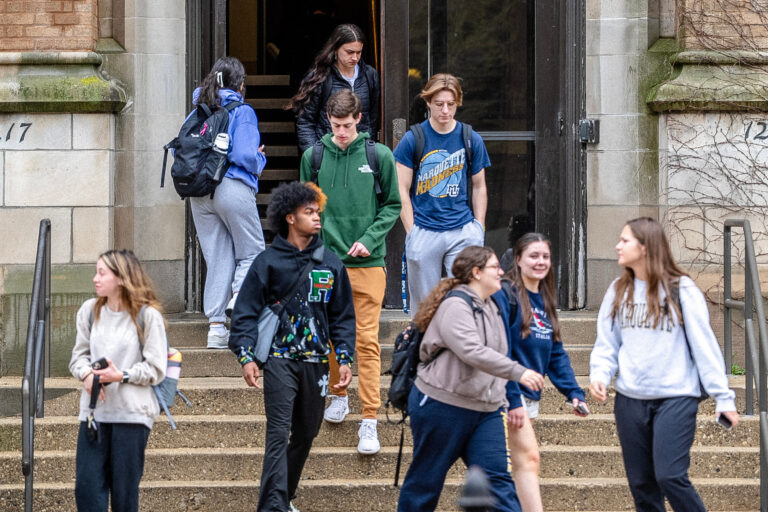The Department of Human Resources, in collaboration with a project team composed of key university partners, is leading a new Staff Compensation Structure Project aimed at assessing compensation practices to best position the university to meet its strategic goals.
The project will examine and consider a range of components that make up the university’s overall staff compensation structure. These include overall philosophy; job classification framework; titling methodology; market data; salary structure; and policies, practices, and governance.

“The purpose of this project is to assess our current and future realities and ensure that the entirety of our staff compensation structure appropriately addresses those realities,” says Claudia Paetsch, vice president for human resources. “At its conclusion, the process may identify clear areas where adjustments to some salaries or titles are necessary as a result of updating our compensation methodologies, but any such changes should be considered outcomes, not goals.”
According to Paetsch, there are eight key factors driving the project, which she describes as the need to:
- Attract, retain and engage our workforce
- Balance flexibility, consistency and fairness
- Thoughtfully steward university resources
- Address how a changing workforce necessitates changes in work structure and design
- Prioritize professional growth and development
- Focus on changing skills needed, i.e., more critical thinking and problem solving within an increasingly complex environment
- Improve clarity, understanding and transparency
- Modernize compensation to enable the university’s success
Paetsch adds that the project should not be conflated with the university’s recent Faculty Compensation Study. “These are independent and decidedly different projects in their overall structure and goals, and they should not be viewed analogous to one another,” she says.
Campuswide perspective, input and participation is important to the project’s success, Paetsch points out. To that end, a cross-campus project team comprises the following individuals:
- Eric Benjamin (director of applications, ITS)
- Steve Celichowski (business director, Opus College of Engineering)
- Dr. Dave Clark (executive associate dean, College of Business Administration; professor of economics)
- Dr. Joya Crear (assistant vice president, Division of Student Affairs)
- Mike Jahner (director of facilities management and university engineer, Facilities Planning and Management)
- Kelly Hicks (senior director of administrative services, University Advancement)
- Ed Sanchez (department head of library technology services, Raynor Memorial Libraries)
- Chris Stolarski (associate director of university communications, Office of University Relations)
- Carol Trecek (director of continuing education and alumni relations, School of Dentistry; chair, University Staff Senate)
Additionally, to bring third-party expertise and objectivity to the project, Human Resources has engaged leading higher education compensation and benefits consultant firm Segal. Among the top 10 such consultancies in the U.S., Segal has represented more than 250 private and public colleges and universities, including nearly all 27 Jesuit institutions in the nation.
The Staff Compensation Structure Project Team expects its work to conclude in the spring 2023 semester. The team will continue to provide updates as the project progresses via Marquette Today and LEAD briefings.



